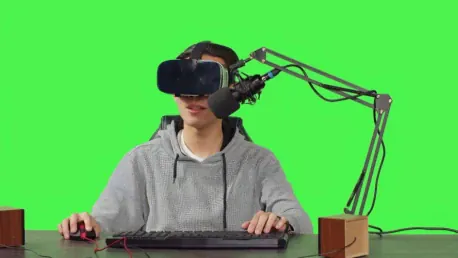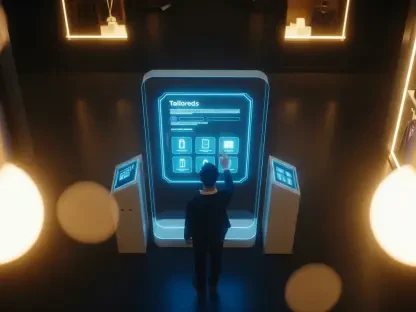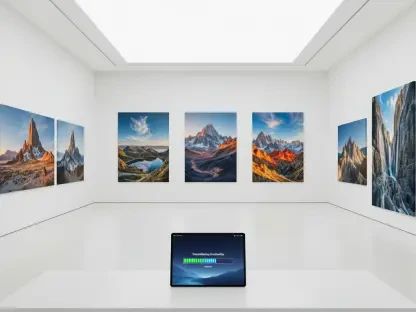The announcement of OpenAI’s latest innovation, Sora, has intrigued both content creators and tech enthusiasts, offering transformative possibilities in the rapidly evolving landscape of digital media. Sora is an AI-powered video-generation tool that enables users to convert text prompts into videos quickly and efficiently. However, its initial rollout excludes users in the European Union and the United Kingdom due to regulatory concerns, raising questions about the global accessibility of cutting-edge technology.
Simplifying Video Production
Turbo Architecture and Ease of Use
Sora’s design prioritizes speed and user convenience, leveraging OpenAI’s Turbo architecture to accelerate the video creation process. This integration aims to streamline tasks traditionally requiring extensive time and effort, thereby lowering the barriers to entry for aspiring video makers. Sora’s dedicated UI Studio, which incorporates a storyboard feature, further enhances its usability. This storyboard interface is reminiscent of social media platforms like TikTok and Instagram Reels, making it intuitive for creators familiar with short-form video formats. As a result, content creators can quickly adapt to Sora, leveraging its capabilities to generate high-quality videos effortlessly.
With the Turbo architecture embedded within Sora, users gain access to advanced processing power that handles complex video-generation tasks with remarkable efficiency. This robustness ensures that both individual creators and large enterprises can rely on Sora for consistent, high-performance output. By simplifying the video production workflow, Sora enables users to focus more on storytelling and creativity rather than the technical aspects of video editing. This shift empowers content creators, marketers, and businesses to produce engaging and dynamic video content without being bogged down by traditional production hurdles.
Accessibility and Initial Limitations
Notably, Sora is available to ChatGPT Pro and Plus subscribers at no additional cost, underscoring OpenAI’s commitment to making advanced tools accessible to its user base. However, the decision to withhold Sora from the EU and UK markets sheds light on the broader implications of regulatory landscapes on technology adoption. This geographical exclusion not only highlights the complexities of navigating international regulations but also raises discussions about equitable access to innovative tools. As Sora becomes more prevalent, its absence in certain regions underscores how regulatory frameworks can influence the distribution and impact of emerging technologies.
The absence of Sora in the EU and UK serves as a reminder of the intricate balance between innovation and regulation. While OpenAI aims to democratize AI technologies, regional policies and concerns about data privacy and security play a pivotal role in shaping how and where these technologies are deployed. This scenario also emphasizes the importance of creating globally adaptable solutions that can comply with varying regulatory requirements while still providing value to users worldwide. The ongoing dialogue between technology developers and regulatory bodies will thus be essential in ensuring that groundbreaking tools like Sora can eventually reach and benefit a broader audience.
Implications for Content Creation
User-Friendly Features for Creators
Sora’s storyboard feature is specifically designed to cater to the needs of social media content creators, aligning with current trends in quick, engaging video content. By offering an interface similar to popular platforms like TikTok and Instagram Reels, Sora makes it easier for creators to generate content that resonates with their audience. This user-friendly approach is expected to lead to an increase in AI-generated videos across various platforms, potentially transforming how content is consumed and perceived. As more creators leverage Sora’s capabilities, the abundance of AI-generated media may challenge viewers’ ability to distinguish between authentic and synthetic content.
The intuitive design of Sora’s storyboard feature not only simplifies the video creation process but also opens up new avenues for creativity. Creators can experiment with different styles and formats, pushing the boundaries of traditional content creation. This flexibility is particularly beneficial for those looking to produce unique and engaging videos that stand out in an increasingly saturated digital landscape. As Sora becomes a staple tool for content creators, its influence on social media trends and video consumption patterns will likely grow, further blurring the lines between human-made and AI-generated content.
Business Opportunities and Potential Risks
For businesses, Sora presents an opportunity to enhance marketing strategies through efficient and scalable video production. Companies can utilize AI-generated videos for various purposes, including advertisements, promotional content, and customer engagement. Sora’s capabilities allow businesses to produce high-quality videos at a fraction of the time and cost associated with traditional methods. However, with this increased efficiency comes the responsibility to use AI tools ethically and transparently. The potential for misuse, such as the creation of misleading or harmful content, underscores the need for guidelines and safeguards to ensure responsible AI usage.
The rise of AI-generated content in business applications also prompts a reevaluation of content authenticity and consumer trust. As Sora and similar tools become more prevalent, it is crucial for businesses to maintain transparency about their use of AI in content creation. Labeling AI-generated videos, for instance, can help preserve consumer trust and uphold ethical standards. By adopting responsible practices, businesses can harness the power of AI without compromising their integrity or the quality of their content. The integration of AI in video production thus represents both a significant opportunity and a challenge, requiring careful consideration of ethical and practical implications.
Shaping the Future of AI and Creativity
Democratizing Access to AI Technologies
The introduction of Sora marks a significant milestone in the democratization of AI technologies, making advanced video generation accessible to a wider audience. By lowering the barrier to entry, Sora enables more individuals and organizations to explore and leverage the potential of AI in creative endeavors. This democratization fosters innovation and experimentation, as users from diverse backgrounds can contribute to the evolution of digital media. As Sora gains traction, its impact on media, marketing, and content creation will become increasingly evident, showcasing the transformative power of AI in shaping future trends.
However, with the democratization of AI comes the responsibility to promote ethical and responsible usage. OpenAI and other stakeholders must work collaboratively to establish guidelines that ensure the safe and beneficial use of AI technologies. As users become more adept at utilizing tools like Sora, the emphasis on transparency, authenticity, and ethical considerations will be paramount. The ongoing dialogue surrounding responsible AI integration will play a crucial role in balancing innovation with the need to protect consumers and maintain trust in digital media.
Innovation and Regulatory Challenges
OpenAI’s latest innovation, Sora, has piqued the interest of content creators and tech enthusiasts alike, offering revolutionary prospects in the fast-changing realm of digital media. Sora is an AI-driven video-generation tool that allows users to swiftly and effectively transform text prompts into videos. This groundbreaking tool promises to reshape how videos are made, enhancing creativity and efficiency for creators. However, the initial launch of Sora comes with a significant caveat: it will not be available to users in the European Union and the United Kingdom due to regulatory challenges. This decision raises important questions about the global accessibility of advanced technologies and the impact of regulatory environments on innovation dissemination. While Sora’s potential is undeniable, its limited accessibility underscores the complexities of rolling out cutting-edge tech on a global scale and highlights the need for harmonized regulations to ensure broader access to technological advancements.









